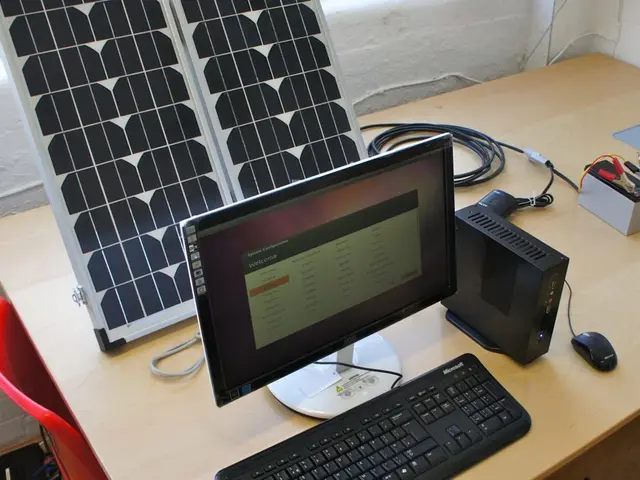Solar sector braces for company collapses due to sluggish progress and dropping consumer interest
Germany's Solar Industry Faces Challenges Ahead
The solar industry in Germany is bracing for a continued decline in solar installations over the coming months, according to the Federal Association of the Solar Craft (BDSH). This decline has been observed since the electricity price shock caused by the Ukraine war in 2022, which led to a boom in solar installations and attracted new providers of solar systems.
The decline has been particularly pronounced in rooftop installations for private homeowners. Last year, solar energy reached a record with an increase of more than 16 gigawatts in solar installations, but demand has noticeably cooled off since the electricity price shock.
Peter Knuth, chairman of the BDSH and CEO of Enerix, has little hope that the situation will stabilize soon. Knuth stated that the market consolidation will continue in the coming months, and the year 2025 is unlikely to bring a turnaround in the industry's current situation. The solar industry anticipates an increase in company insolvencies due to the waning growth of solar installations.
According to Knuth, purely selling photovoltaic systems is no longer enough for many solar companies. Many solar companies are hoping for orders for heat pumps as an alternative.
The decline in solar installations has occurred since the electricity price shock, and several interrelated factors have contributed to this trend. Intense competition from low-cost Chinese manufacturers has made it difficult for European, including German, solar module producers to compete effectively, leading to insolvencies such as Meyer Burger and Glasmanufaktur Brandenburg.
Reduced state subsidies and policy uncertainties have undermined the previous growth momentum and profitability for solar companies. Swiss experience nearby also shows how declining subsidies pressure providers. Recent policy changes like the so-called "sun tax" impose levies on self-consumed solar power above certain thresholds, which discourages adoption and self-sufficiency, increasing operational costs for providers and customers alike.
Rising energy costs and tax burdens across Germany's economy contribute to a broader wave of insolvencies and economic strain, affecting the Mittelstand and energy sector firms amidst limited political support or policy shifts. Although regulatory frameworks for grid operators aim to provide stability and long-term investments, this has not yet translated into tangible support or protections for struggling solar manufacturers and providers.
In summary, the consolidation and disappearance of solar providers in Germany are due to a mix of harsh price competition mainly from China, diminishing financial incentives from government subsidies, new taxes undermining solar economics, and broader economic challenges leading to insolvencies within the sector.
\n\nReferences:
- Meyer Burger insolvency
- Glasmanufaktur Brandenburg insolvency
- Sun tax
- Economic challenges in Germany
- Regulatory frameworks for grid operators
Read also:
- More than half of British homes adhere to insulation standards established during the 1970s.
- Opposition to Solar Energy Reductions by SPD
- Renewable Energy Capacity Surges to an All-Time High of 4,448 Gigawatts in 2024, Yet More Rapid Increases are Necessary to Achieve 2030 Goals – Report by IRENA
- Altering Earth's Magnetic Field: Examining the Effects on Planetary Climate Through Shifts in Polarity








